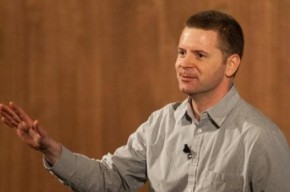ACNA Assembly Day 2
By Andrew Symes:
I need to begin with a correction, and redirection. For the latter, you’ll get all the detail of the conference from the ACNA website, courtesy of the busy team of reporters.
The real numbers of ACNA
The correction concerns the number of congregations in this new movement. The figure I mentioned yesterday was not correct. Here is the true assessment from Archbishop Robert Duncan:
“We sowed in tears. We reap in joy.
983 congregations of the Anglican Church in North America were known to be active at the end of 2013. That compares to 700 known congregations in June of 2009. This is a 40 per cent growth in absolute numbers of congregations. 105 new congregations are reported…as anticipated start-ups in 2014. So the number of our congregations could be as high as 1088, or a fifty-five per cent increase in congregations since 2009…
…Of a total number of 3097 baptisms, thirty-one per cent, 969, are of those above the age of 16, converts not transfers… There were 6011 new people reported to have been brought into our congregations through evangelism and outreach. There were 2079 confirmations, 1312 receptions and 293 reaffirmations of Faith.”
This is remarkable growth, and Archbishop Duncan is surely correct when he says “… no other Christian group in North America has done anything like this in the last five years.” His full assessment can be found here. We are getting a chance to see living examples of some of these statistics at the beginning of each plenary session, with the aid of short video clip documentaries of selected churches and their stories.
Today’s conference experience has also been great, with excellent worship, teaching, fellowship and food backed by superb organisation as one would expect. But if you want to continue with the picture of the ACNA as a perfect church, read no further, because there have been one or two minor questions that have arisen in my mind from today’s programme, as well as being challenged and blessed.
Bible Teaching
The day begins with a short time of worship using a form of Morning Prayer with songs, followed by “Bible Teaching”. This is presented by two expat Englishmen, Justyn Terry and Peter Walker, respectively Professors of Systematic Theology and Biblical Studies at Trinity School of Ministry, who are expounding bible passages undergirding the theme of the Conference: Thy Kingdom Come – Conversion, Compassion, Courage. The rest of the talks and seminars are being given by outstanding and often well known speakers, often not Anglican, selected for their brilliant communication skills on topics where their presentations are well honed. While much of what these later speakers say has a biblical basis, it does not require the opening of a Bible. The danger of this is that the “Bible teaching” could perhaps be seen as “dealt with” at the beginning of the day and is not integrated. Also, with no disrespect to the two Bible teachers, there may inevitably be unfair comparisons between their presentations and the professionals who know how to move an audience.
There was a strong recurrent theme today of challenging Christian communities to move out of their comfort zone, to listen to the culture and respond with new creative ways of doing evangelism, to take risks and not to retreat into finding safety. So Gary Haugen, head of the International Justice Mission, explained how his organisation helps churches to grow in trusting God by intentionally moving alongside people who are being treated unfairly and acting and praying with them for justice. Getting involved in advocacy work gets us into trouble, which makes us rely on God. He reminded us that violence against women causes more suffering worldwide than disease – a situation that I will personally be much closer to next week as I travel on to Kinshasa and Lubumbashi in the Democratic Republic of Congo.
Mission and Culture
Speakers Andy Crouch and Christopher West both spoke on engaging with our own Western culture in mission and evangelism, somehow avoiding the pitfalls of condemning culture as irredeemably sinful on one hand and uncritically affirming it and consuming its goods on the other. This is a crucial area which needs more discussion among the orthodox in the Church of England, where many have concluded that the obvious controversial topics should simply be avoided “for the sake of mission”. For Crouch the key theological idea is expressing the image of God in our creativity; for West it is desire pointing to the yearning for heaven, and marriage as an icon of relationship with God.
My question mark about the talks is that they continually use a caricature of ‘Puritan’ joyless rules-based uncreative Christianity as the reason why the world does not believe the Gospel. They could have analyzed some of the concepts behind contemporary manifestations of rebellion against God’s order which cannot just be blamed on the failures of some conservative churches. On the other hand, a movement like ACNA founded on a separation from an apostate denomination, can be easily dismissed as defining itself by what it is against, so it is important to find ways of expressing God’s positive vision for human flourishing as well as a Gospel of forgiveness of sin.
The general mood of optimism was enhanced by the fact that USA qualified for the last 16 of the World Cup, together with Nigeria and Chile who also have delegates at the conference. Tomorrow at a seminar entitled “The Global Anglican Reformation: What is God doing?” I will present a five minute slot on the Church of England.






